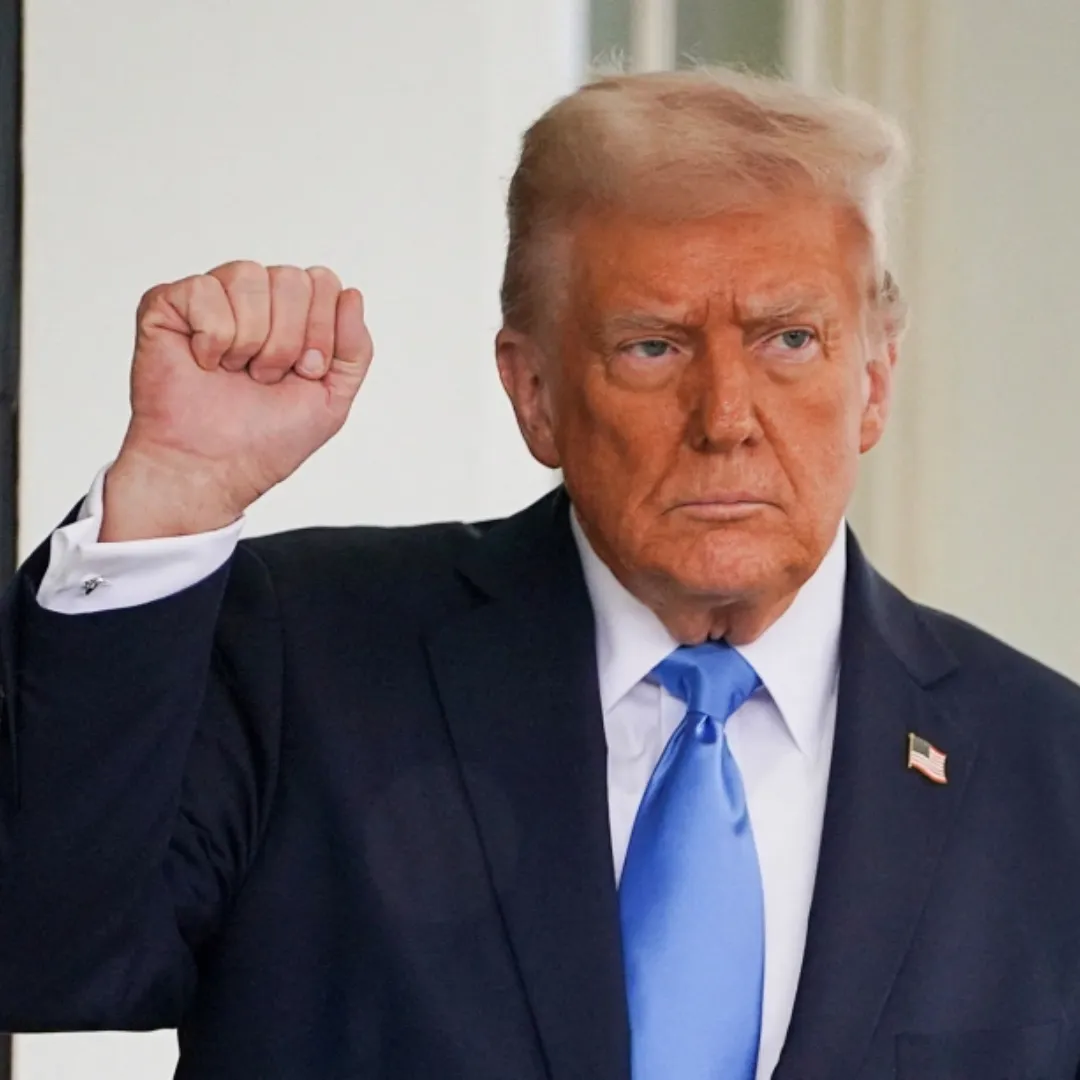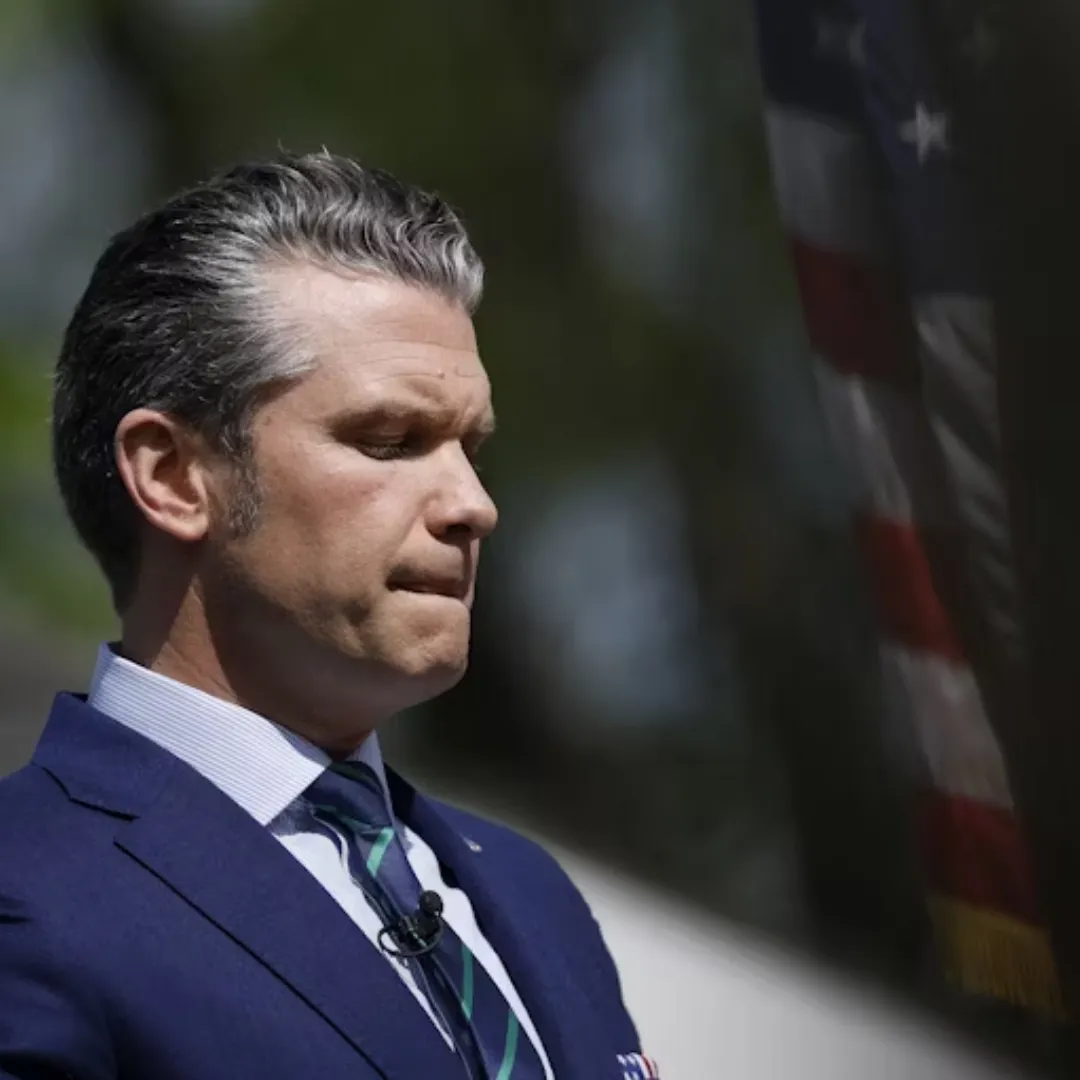
President Donald Trump is once again stirring controversy over his rhetoric, this time for repeatedly suggesting that children in America should be fine with having fewer dolls or school supplies if his aggressive tariff policies lead to higher prices.
The remarks, made in multiple public appearances including a televised interview and a Cabinet meeting, have provoked a sharp reaction from political figures and commentators across the spectrum.
What began as a seemingly offhand comment has turned into a full-blown messaging crisis, with members of Trump’s own party warning that such statements come across as elitist, tone-deaf, and politically damaging at a time when American families are already struggling with economic pressures.
Marc Short, a longtime ally of former Vice President Mike Pence and now co-chair of the conservative group Advancing American Freedom, went on CNN Monday to publicly voice concerns about the president’s message.
Short, who previously served as Pence’s chief of staff, said that while he supports Trump’s overall economic goals, the communication strategy around tariffs and consumer costs is alienating key voters.
According to Short, Trump’s comments about how many dolls or pencils a child should have reveal a lack of sensitivity to the financial realities of middle- and working-class families.
He said, “I think it’s really damaging messaging. I think everybody understands he’s very financially wealthy, but beginning to tell the American people how many dolls or how many pencils they can have, I think, suggests a little bit of an elitism perspective.”
The comments in question first came to light during an interview Trump gave at his Mar-a-Lago estate in Florida, which aired Sunday on NBC’s “Meet the Press.” When asked about the effects his new round of tariffs might have on consumer prices, Trump defended the potential increase in costs by minimizing the importance of material goods.

He said, “I don’t think that a beautiful baby girl needs — that’s 11 years old — needs to have 30 dolls. I think they can have three dolls or four dolls, because what we were doing with China was just unbelievable. We had a trade deficit of hundreds of billions of dollars with China.” He went on to say, “They don’t need to have 250 pencils; they can have five.”
Rather than walking back the remarks or providing clarification, Trump repeated the sentiment again later in the week during a Cabinet meeting. Speaking to his assembled officials, he said, “Well, maybe the children will have two dolls instead of 30 dolls. Maybe the two dolls will cost a couple bucks more than they would normally.”
He framed the issue as a patriotic sacrifice for the greater good of correcting what he describes as years of lopsided trade relations with China and other countries. But for many observers, the language he used came off as patronizing and dismissive of the financial struggles that everyday Americans face.
Retailers and economists have already been sounding the alarm about the broader implications of Trump’s tariff strategy, which includes heavy duties on a wide range of consumer goods, many of which are imported from China.
The additional costs are expected to hit American consumers directly, with items like toys, school supplies, and clothing expected to rise in price if the tariffs go into full effect.
Trade organizations representing major retail chains have warned that supply chains are already being disrupted and that the higher prices could be especially burdensome for low-income families as the back-to-school season and holiday shopping periods approach.
Trump, however, insists that his policies will bring long-term benefits by pressuring trading partners to reduce tariffs on American exports and to negotiate better deals for U.S. workers and companies.
He has also portrayed the tariffs as a tool to confront China over a variety of issues, from intellectual property theft to national security concerns. Yet critics argue that while the strategic aims may be valid, the lack of clear communication and the dismissive tone about short-term consequences risk undermining public support for the policy.

Marc Short echoed those concerns, stating that the administration has failed to present a consistent narrative about the purpose of the tariffs. “I think the administration would be better off if they had a more concerted effort to tell the American people — hey, look, we are asking the world to be united here because we’re trying to take on China,” he said.
Short outlined the conflicting explanations the administration has given for the tariffs over time, saying, “In some cases, they’ve said it’s to focus on China; in some cases, they’ve said we’re trying to lower trade barriers across the globe; and they’ve talked about Canada and Mexico and European allies as enemies.
In some cases, it’s been to say we’re trying to address fentanyl, and in some cases, it’s been to say we’re going to get rid of trade deficits across every trading partner we have.”
Short warned that without a unified explanation, the public is left confused and increasingly skeptical. He said, “The messaging hasn’t really been concerted. If you begin getting to the point that people now expect some of these economic disruptions, I think a lot of Americans are going to say well, what is the intended purpose here — why are we being limited to the number of dolls or the number of pencils we can buy?”
Criticism of the president’s remarks has not been limited to think tanks or policy experts. Across social media platforms, the comments have been widely mocked, with many users questioning how a billionaire president living in a private resort can lecture working families on what their children should or should not have.
Parents, educators, and consumer advocates have joined the chorus, arguing that the president’s comments reflect a broader disconnect between the Trump administration and the everyday concerns of families trying to stretch their budgets in the face of inflation and wage stagnation.
Trump’s defenders argue that he is simply asking Americans to make short-term sacrifices in order to fix a broken global trade system that has disadvantaged the United States for decades.
They say that minor inconveniences like buying fewer dolls or paying a few extra dollars for pencils are a small price to pay for restoring economic sovereignty and securing better trade deals. Some have even praised the president for being willing to make tough decisions that previous administrations avoided out of fear of political backlash.

Yet even among Trump’s core supporters, there is growing unease about how the tariffs are being explained and the optics of suggesting that families can just make do with less.
For many voters who were drawn to Trump’s populist message in 2016, the appeal was based on a promise to improve economic conditions, not to ask them to accept new hardships.
If the public begins to associate the president’s trade policy with reduced quality of life, it could pose a significant risk to his political standing heading into future elections.
The president’s comments about dolls and pencils are likely to remain part of the public discourse as long as the tariffs remain in place and as long as prices continue to climb.
The remarks may even become a symbol of the broader debate over how trade policy affects ordinary Americans and how leaders communicate those impacts. Whether the administration chooses to revise its messaging or double down on the current approach could determine how this issue plays out in the months ahead.
For now, critics like Marc Short are urging the administration to refocus its efforts on clearly explaining the strategic goals of its trade policies and on presenting a more empathetic message to the American people.
Short believes that with better communication, the administration can rally support behind its goals without appearing dismissive of the public’s concerns. But as long as the messaging remains vague and the rhetoric remains out of touch, the backlash is unlikely to fade.




